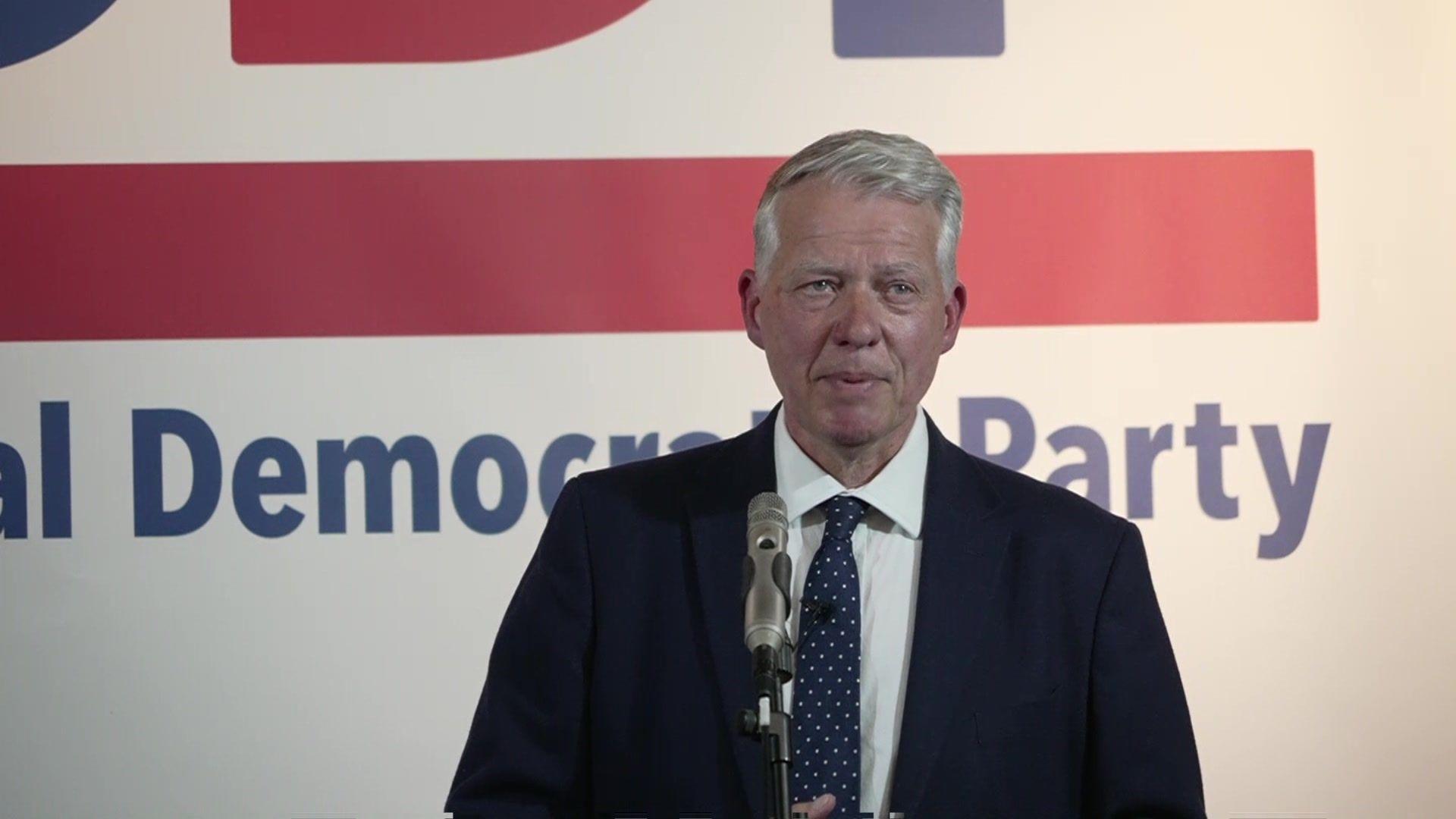SDP promises to reindustrialise the UK in manifesto

SDP leader William Clouston says 'it's good to be back'
- Published
The Social Democratic Party (SDP) have promised to "reindustrialise" the UK as it published its manifesto.
The party traces its roots back to a splinter group of MPs who left Labour to form a new centrist party in 1981.
It has set out plans to invest £10bn each year in manufacturing and force public bodies to buy British to reduce regional inequalities and creating high-quality jobs.
The party is standing 122 candidates at the general election and has done a deal to support Nigel Farage's Reform UK in some parts of the UK.
Party leader William Clouston said it was "lovely to be back”.

The SDP's 36-page manifesto document, titled Homecoming, promises to put “family, neighbourhood and nation” front and centre.
At its launch, Mr Clouston spoke about the “epidemic of family breakdown” and said “a British 16-year-old is more likely to have a screen in their room than a father in the house”.
Mr Clouston said his party’s headline plan to allow a full sharing of tax allowances between couples raising children would mean they “wouldn’t pay any tax for the first £25,000”.
He described the Conservative and Labour dominance of Westminster politics as an “awful duopoly” and said his aim was to “give people something decent to vote for”.
“We’ve become a very fractious and divided society,” he said, “some get rich and some get hungry. It’s unacceptable.”
Major themes of the launch and the manifesto included reindustrialisation and renationalisation.
The party’s stance on sex and gender was also prominent throughout.
Mr Clouston said their policies in the area had consulted trans members of the party and that he believed gender dysphoria was real but that it “doesn’t mean that you can acquire rights and you can trample on sex-based rights”.
The original SDP was founded by the "gang of four" cabinet ministers – Roy Jenkins, David Owen, Bill Rodgers and Shirley Williams.
They were household names and they gained huge media attention, but struggled to gain much electoral success and most members of the original SDP merged with the Liberal Party in 1988 to form the Liberal Democrats.
Some of those that remained went on to form the current SDP in 1990.
They describe themselves as “patriotic, economically left-leaning, and culturally traditional” and their headline policy is to allow couples raising children to fully share tax allowances.
Mr Clouston has led the party since 2018. He’s a former Conservative member with a background in urban planning and property management.
Their list of candidates includes the journalist Rod Liddle.
The party also has an election pact with Nigel Farage’s Reform UK, with the two standing aside for each other in six constituencies, and more than a dozen candidates standing under a joint Reform-SDP banner.